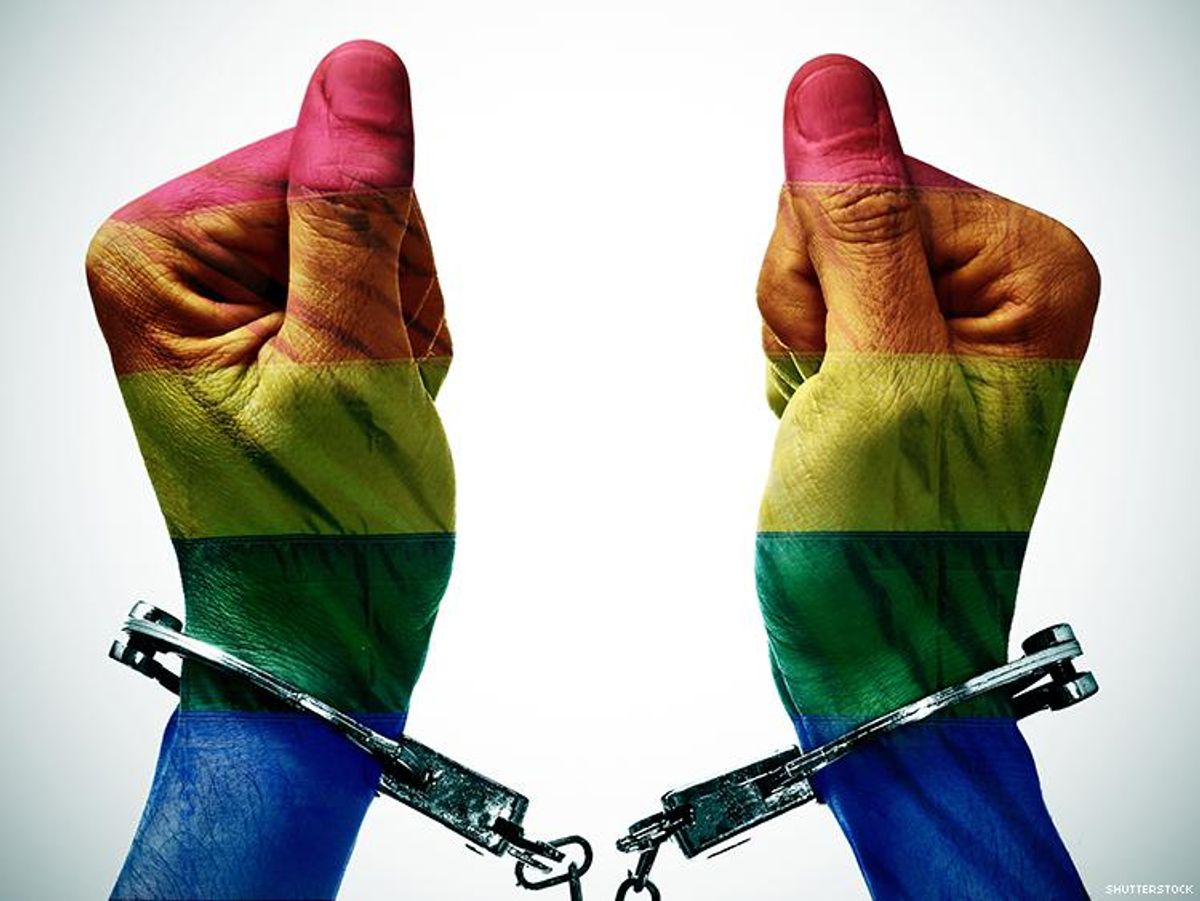A new report on the incarceration of lesbian, gay, bisexual, and transgender Americans and how the nation's criminal justice system treats LGBT people shows how they are disproportionately imprisoned and face abuse behind bars.
The study's authors, the Center for American Progress in conjunction with the Movement Advancement Project and in partnership with other groups, found that LGBT people are more likely than the average American to interact with law enforcement and to have their lives "criminalized" as a result of what the groups call "pervasive stigma and discrimination, biased enforcement of laws, and discriminatory policing strategies."
"It used to be a crime to be LGBT in the United States," said Ineke Mushovic, executive director of the Movement Advancement Project. "And while police are no longer raiding gay bars, LGBT people, especially LGBT people of color, are still disproportionately pushed into the criminal justice system. They are treated unfairly within the system and in correctional settings, and face extraordinary challenges in rebuilding their lives."
The report delves deep into personal stories of LGBT people impacted by the failure of the U.S. criminal justice system to treat each inmate equitably and highlights that those identifying LGBT pay a higher price than others.
Nearly 8 percent of individuals in state and federal prisons identified as lesbian, gay, or bisexual in the National Inmate Survey, conducted from 2011 to 2012; the number in city and county jails was 7.1 percent. That's about twice the number of all American adults who identify as LGBT, according to Gallup. Robert Suttle of Louisiana is but one example. He was forced to accept a plea bargain rather than risk a 10-year prison sentence for not having disclosed his HIV-positive status to his boyfriend when they met. He served six months in prison and is required to register as a sex offender through 2024; the words "sex offender" are printed in red capital letters underneath his picture on his driver's license.
The incarceration rate for trans Americans was also significantly higher than for the cisgender population: 21 percent of trans women and 10 percent of trans men will spend time behind bars in their lifetime, compared to the 5 percent of Americans in the general population. One such trans man is Ky Peterson, the Georgia inmate who is at the center of a groundbreaking case involving violence, gender identity, and the dysfunctional prison system. After spending more than five years incarcerated with women, the black trans man has only recently been approved to begin receiving hormone therapy while incarcerated, the 25-year-old tells The Advocate in our latest report.
An estimated 20 percent of young people at juvenile detention facilities identified as LGBT in a 2015 survey of seven such sites. That's triple the percentage of all youth who identify as LGBT or gender-nonconforming. The report tells the story of a 19-year-old bisexual Latino boy, who was asked by an interviewer, "Were you ever stopped and frisked?" He responded:
"About three times like in front of my old school. I would stand across the street and the [police] car would just come by and they'd be like, 'freeze,' and we weren't doing anything, we were just standing across the street from the school. And they would like throw my [skate] board to the side to make sure I didn't like hit them or anything. And then they would just pat me down all types of stuff. One time it was like really crazy. A guy like grabbed my penis and it was just like I don't know. I feel like it got worse, you're stopped and frisked ... it just got worse."
There are numerous ways LGBT Americans are failed by our justice system, according to the report:
"Discrimination and stigma in society housing, workplaces, families and communities leave LGBT people at increased risk for poverty or homelessness, which in turn leads to increased risk of having encounters with law enforcement and, ultimately, criminalization."
In addition, the authors say the discriminatory way in which criminal laws are enforced and that police use strategies and tactics "push LGBT people, especially LGBT people of color and low-income LGBT people, into the criminal justice system."
Once there, they face two major challenges: discriminatory legal proceedings and unfair and inhumane treatment behind bars.
And lastly, if they survive incarceration and try to rebuild their lives, the report details how LGBT people will face discrimination and a general lack of assistance in probation, parole, and society:
"For people who already struggle with pervasive discrimination, such as LGBT people and people of color, the added challenges of having a criminal record create substantial barriers to rebuilding one's life and avoiding future interactions with the criminal justice system. For LGBT immigrants, regardless of immigration status, having a criminal record can easily lead to deportation."
The report touts the success of businesswoman and actress Angelica Ross, who launched a succesful company, Trans Tech Social Enterprises, to help trans individuals learn job skills and land work in the technology field.
Says Laura E. Durso, senior director of the LGBT Research and Communications Project at the Center for American Progress, in the release accompanying the report:
"It is critical to explore solutions that will improve conditions and ensure fairness for everyone. That includes America's nine million LGBT people who are at increased risk of having their lives and life chances destroyed by the current criminal justice system."
Read the report here and watch a video about it below.


















































































